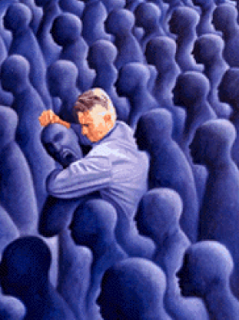The Appetite for Hate
These weeks leading to Rosh Hashanah – especially amidst the tumult of the world – call us to seek and find the good in each other, and make good on our own call to be our best selves.
Easier said than done.
The tumult of the world dredges up sediment of fear, anxiety, anger, powerlessness and more. Many millions feel that way now. So many good and decent people seem less patient nowadays – more bothered, more worried, more beleaguered and just plain raw.
This week’s Torah portion (Ki Teitzei) responds powerfully, “Don’t abhor the Egyptians, for you were strangers in their land” (Deut. 23:8).
Oh? These “Egyptians” enslaved Jews for 400 years, and Torah tells the descendants of their slaves to release all hate of their taskmasters?
Rashi responded to this question by invoking slavers’ benevolent ancestors. Before one Pharaoh “knew not Joseph” and enslaved the Israelites, a prior Pharaoh made Joseph his top lieutenant and saved Joseph’s family (and thus all Jewish history) from death by famine. For that kindness, Rashi concludes that Torah stands against hating that benevolent Pharaoh’s blood-soaked descendants who committed the brutal atrocity of slavery.
Put otherwise, nobody’s legacy is so totally dark that we should hate them, much less as a group. If this idea seems obvious, watch today’s news: it’s a lesson we need to keep learning.
But lest we get self-righteous, note that Torah’s lesson aims at the victims, not the perpetrators. “We” might imagine that these words aim at “them” who hate – white supremacists, anti-Semites, Muslim bashers, misogynists and more. But no, these words aim at “us” who are on the receiving end of hate, or news of hate, or fear of hate, or worry for a country besieged by hate.
Among spiritual life’s challenges – especially when the world turns upside down and shakes loose the sediment of a painful past – is to look beyond the obscuring darkness of hurt, past acts and actors we link with our pain. Some retort that by looking beyond hurts, we ignore or condone bad behaviors and even encourage them. And true, “looking beyond” can be a form of spiritual bypassing that seeks love and forgiveness mainly to avoid feeling pain.
But hate is never a fitting response. To hate is to make and be an abomination. This extreme word, “abomination,” is just what Torah’s Hebrew says: “Don’t abominate (tit’ev) the Egyptians” – from the same root word as “appetite” (te’avon).
Hate has an appetite. Hate consumes. Hate is all-consuming. That’s why hate is an abomination. It is our job to quench that all-consuming response precisely because we’ve experienced it.
How? By shifting awareness to recall that no one and no group is forever irredeemable. Whether kindness came before (an ancient Pharaoh saved the starving) or after (modern Germany stands second to none against Nazis), always there is hope for reconciliation.
Don’t get poisoned with hate, no matter what. Pass it on.
Rabbi David Evan Markus






 Evan J. Krame was ordained as a rabbi by the
Evan J. Krame was ordained as a rabbi by the